What’s Inside The Witch’s House Of Beverly Hills? These Photos Will Leave You Spellbound!
The Spadena House, fondly known as the Witch House, is located at the charming corner of Walden Drive and Carmelita Avenue in Beverly Hills.
It is just a step away from local landmarks like the Waldorf Astoria, Neiman Marcus, Starbucks, and the Los Angeles Country Club.
The home is often seen as an early example of Walt Disney’s idea of Imagineering, where stage sets are turned into complete, real-life environments.
The whimsical house was listed as protected Landmark Number 8 in Beverly Hills in 2013.
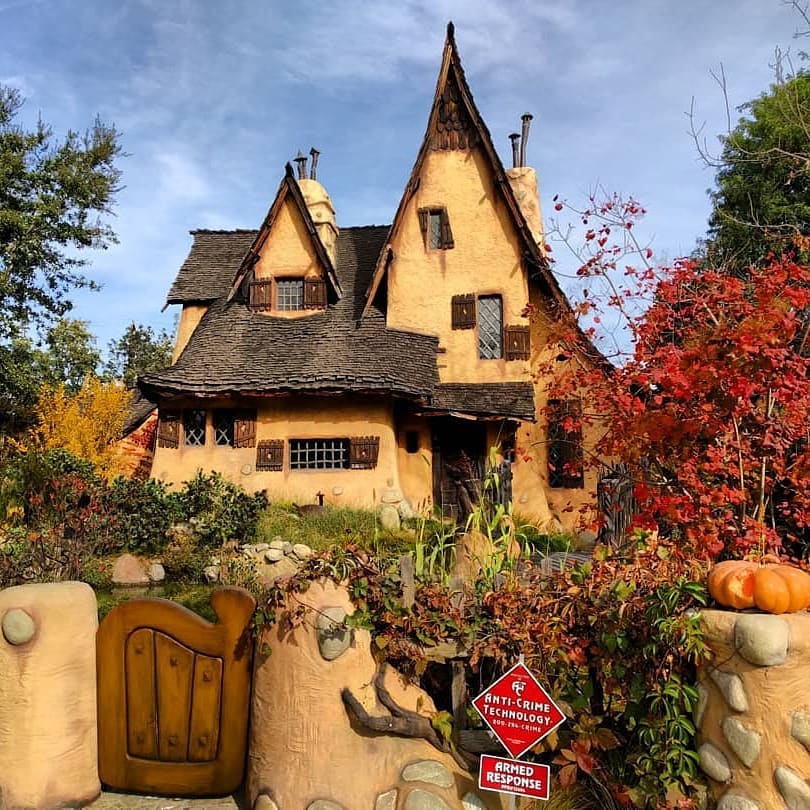
Why Was The House Called “The Witch House?”
The Spandena House earned its magical nickname, the Witch House, because of its enchanting and whimsical design that evokes the imagery of a fairy tale.
The house looks like it was plucked straight from the pages of a storybook.
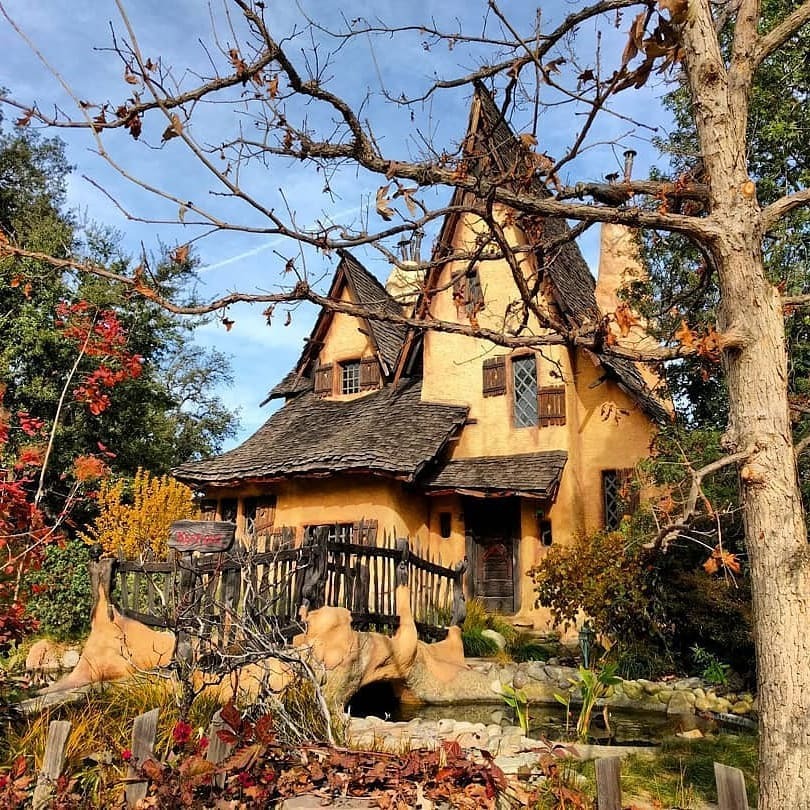
Its tan exterior, brownish-gray wooden shutters, and windows of varying shapes and sizes give it a unique and unbelievable look.
The roof of the Witch House is intentionally designed to look sloped and sagging
The front garden appears to be tended by a practiced witch, with its overgrown plants and whimsical landscaping.
The design of the house, with its pointy, lopsided roof, tiny windows, distressed stucco, and intentionally dilapidated features, contributes to its fairy-tale aesthetic.
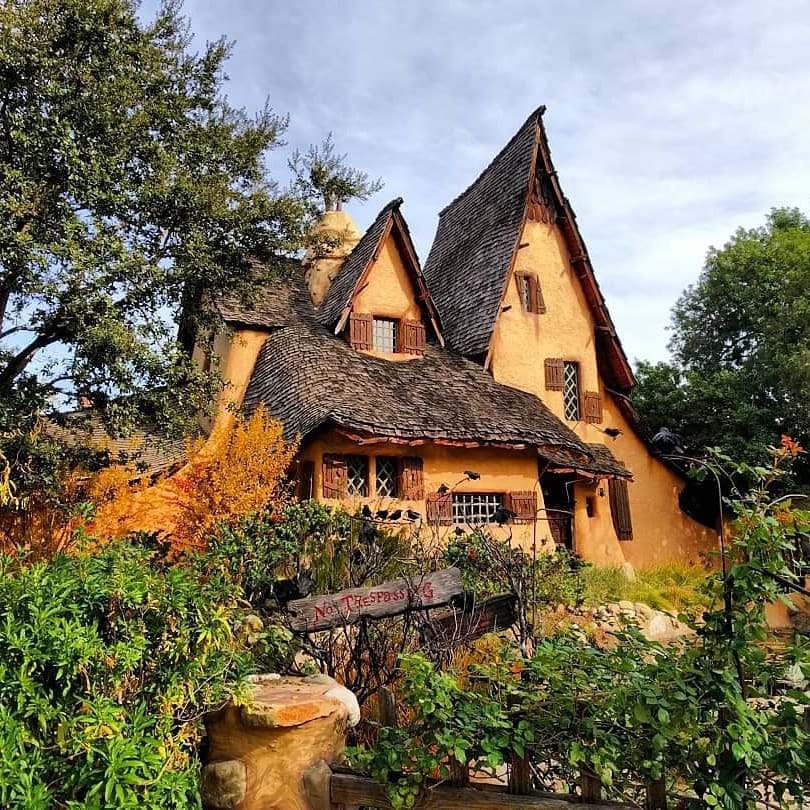
The Whimsical History
The Witch House was designed and built by Harry Oliver, a Hollywood art director at Willat Studios, in the 1920s.
Oliver played an important role in the architectural Storybook style.
The house originally served as an office and dressing room for Willat Studios in Culver City, California.
It featured in several silent films, including “Hansel and Gretel”(1923) and Clueless.
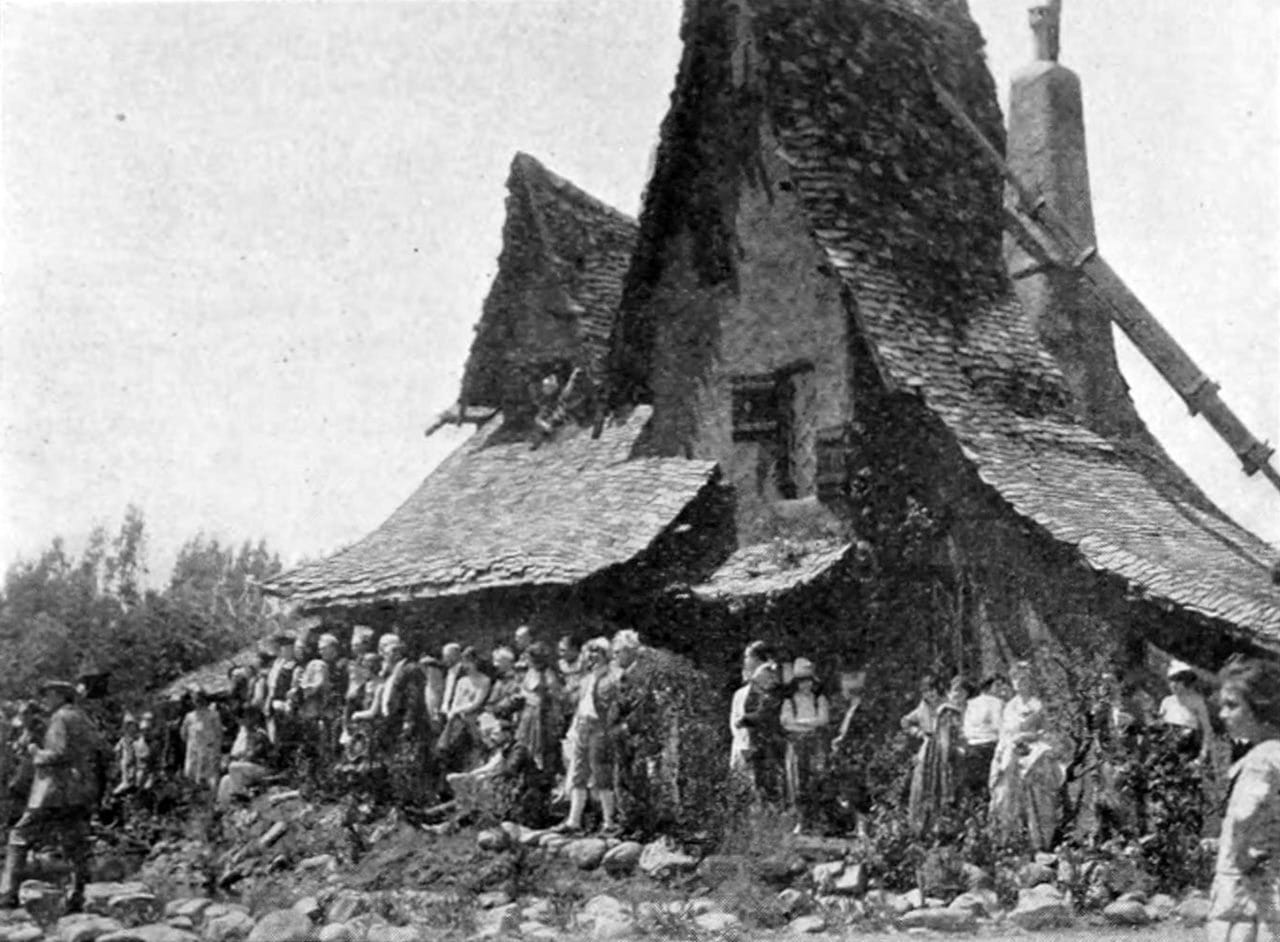
When the studio closed and they planned to demolish the house, producer Ward Lascelle at Willat Studios saved it from demolition and moved it to Walden Drive in Beverly Hills around 1924.
Ward Lascelle decided to transform it into a small but functional home with just a foyer, bedroom, bathroom, and tiny kitchen.
The house is sometimes called the Spadena House because Ward Lascelle’s wife, Lillian, divorced him, kept the house, and then married a man named Spadena.
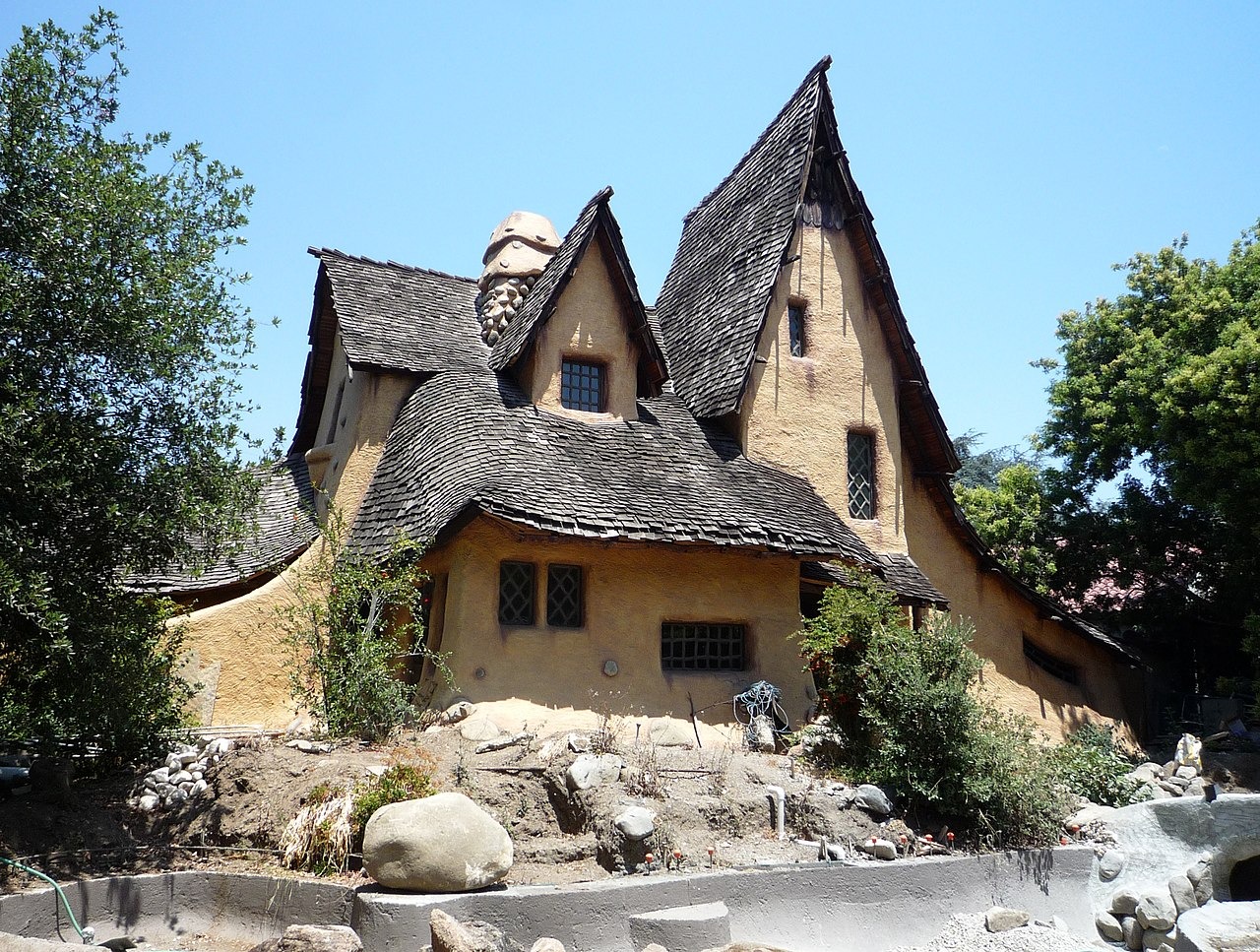
In 1965, Lillian sold the house to the Green family.
In 1998, Real estate agent Michael J. Libow, also the current owner of the Witch’s house, bought the property and lovingly restored it.
Inspired by Gaudi’s design sensibility, Libow worked to ensure that the interior of the house matched its fascinating exterior.
He meticulously restored and enhanced the home’s whimsical features, transforming it into a magical residence with sloped ceilings, unique windows, a massive curved fireplace, mosaic tiles, a pool, and a jacuzzi.
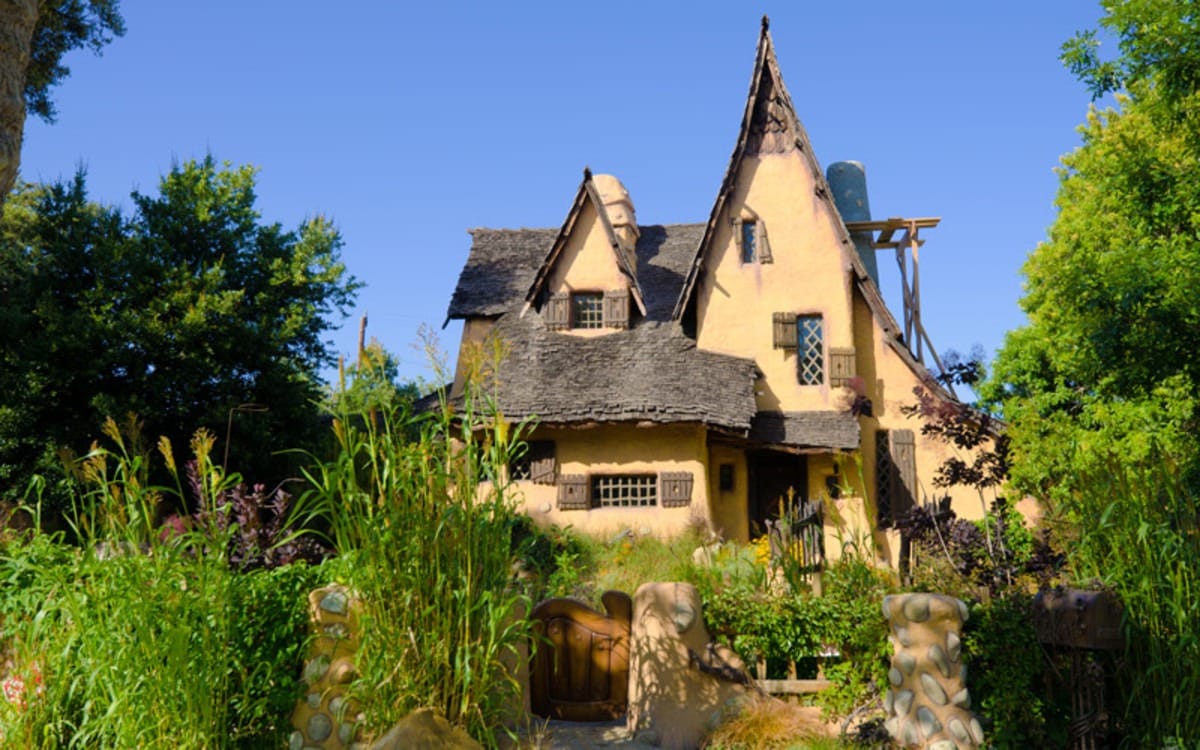
Can You Visit The House?
While the Witch House is not open for public tours, you can still catch a glimpse of its magic from the street.
Many tour buses drive by the property, offering a quick peek at this architectural wonder.
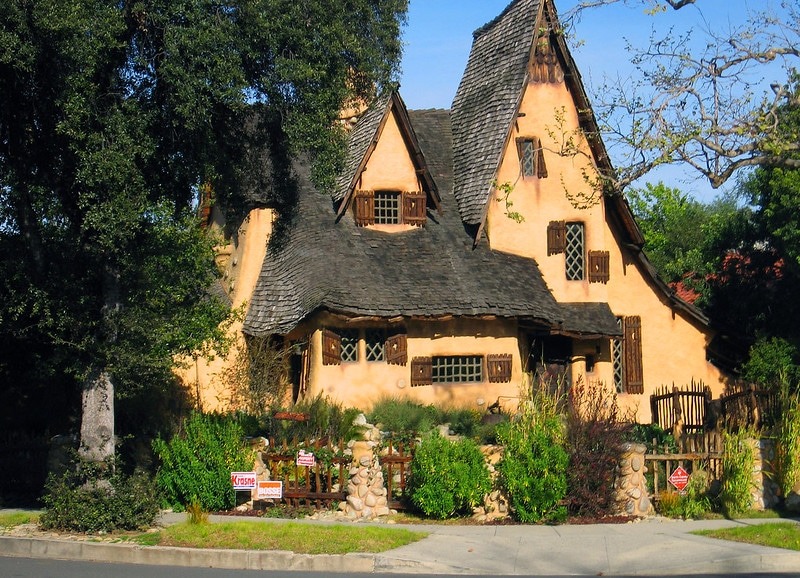
Here are some pictures of the interior of the Witch’s house:
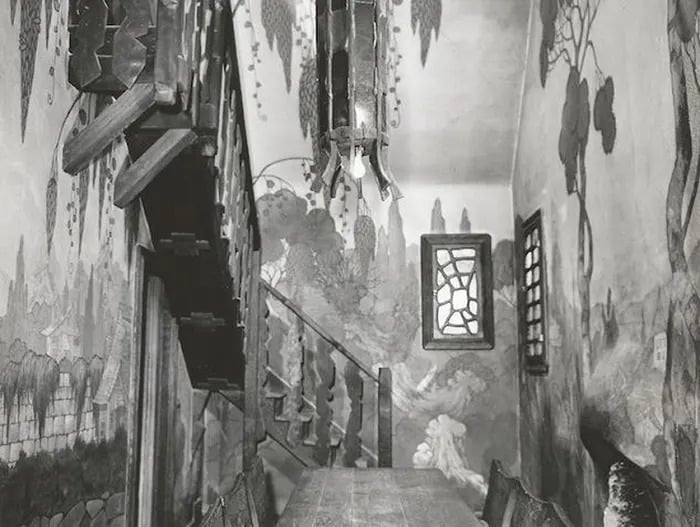
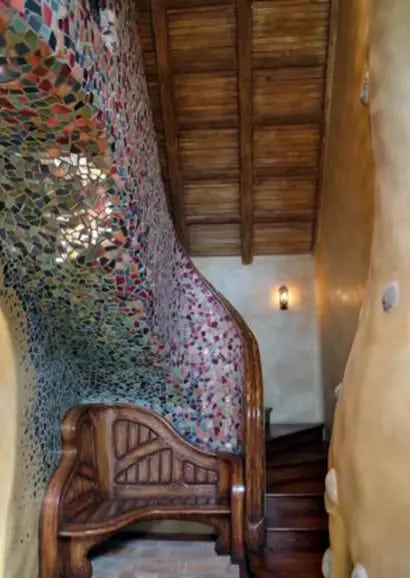
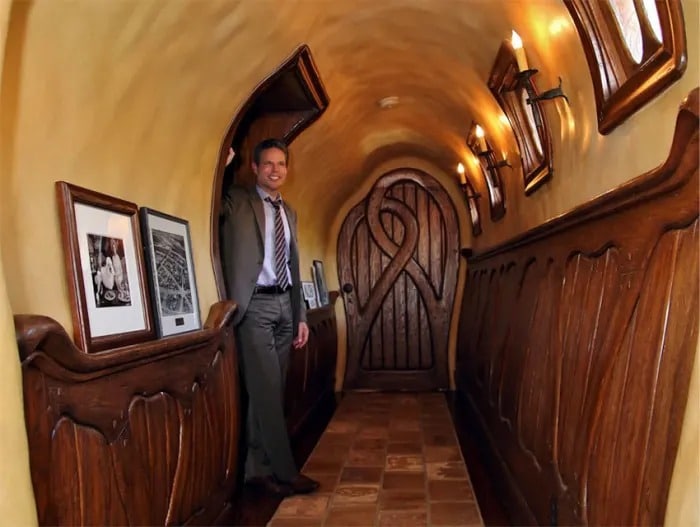
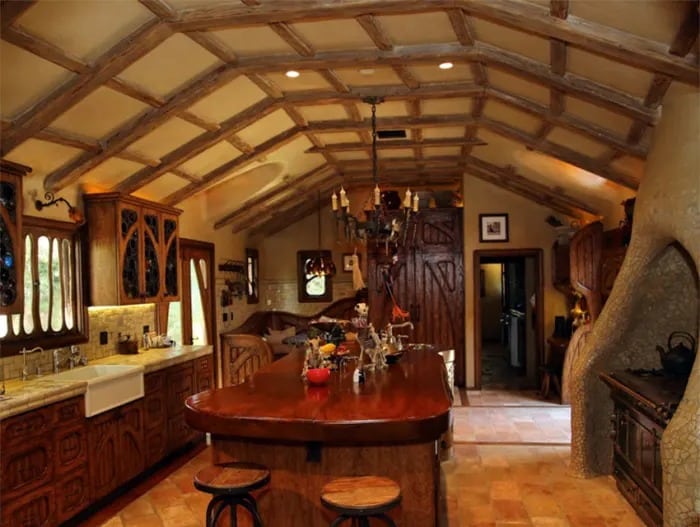
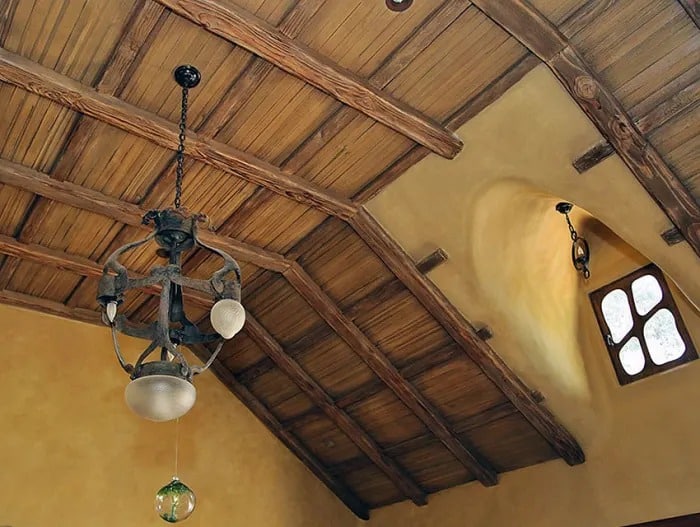
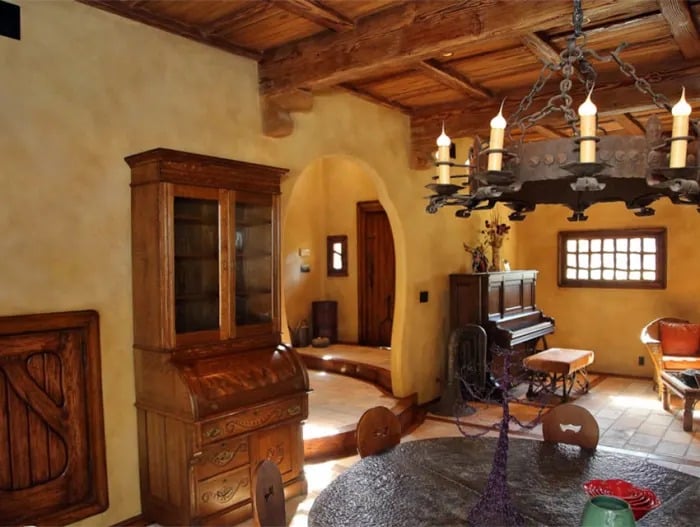
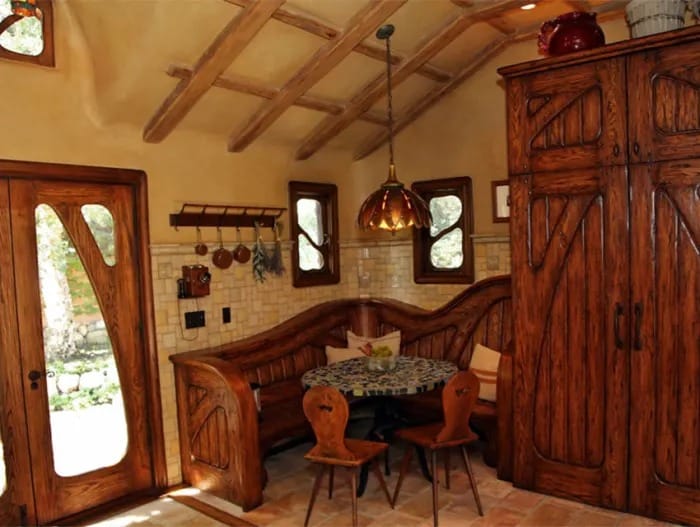
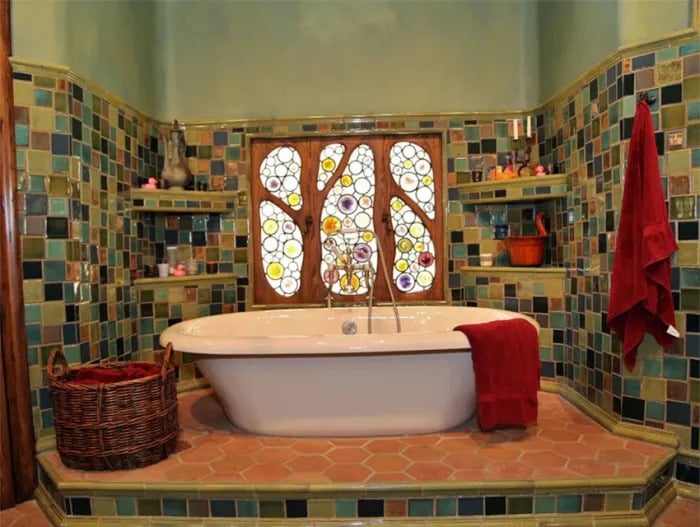
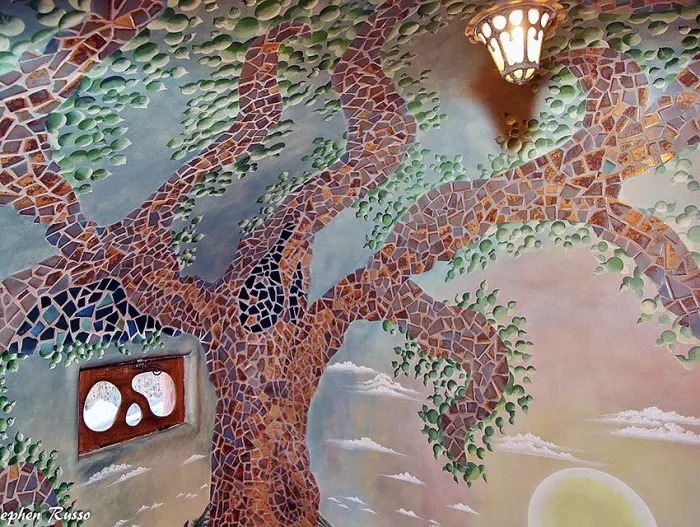
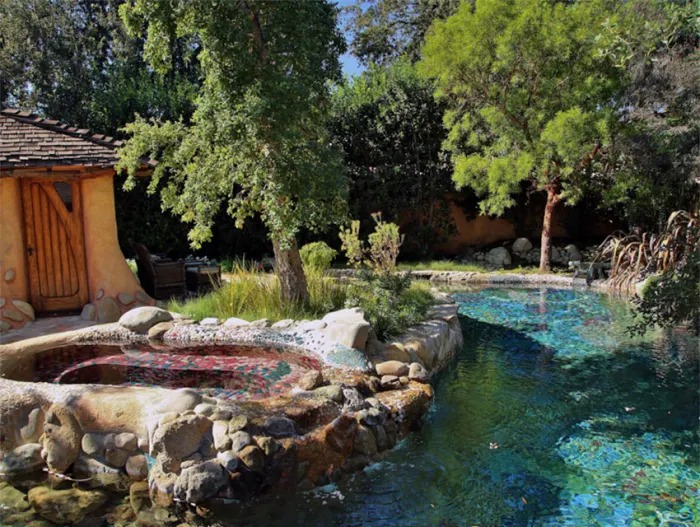
Address: The Witch House, 516 Walden Dr, Beverly Hills, CA 90210, United States

